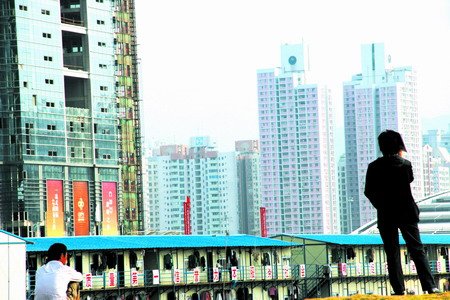Shanghai may impose property tax

Shanghai is mulling tough measures, including imposing a property tax on owners of multiple houses, as early as this month in order to cool the overheated real estate market, the official Shanghai Securities News reported Wednesday.
The draft rules, which are still under discussion and subject to change, include applying existing commercial-use property taxes to owners of multiple residential properties, the newspaper quoted an unnamed source close to the Shanghai municipal government as saying.
Extending existing commercial-use property taxes to owners of multiple residential properties would simplify the legislative process, and property owners would be evaluated by their families' per capita living space, the source said.
If property owners meet the tax-paying threshold, they would pay 0.8 percent of their property's assessed market value annually, the source said.
Detailed rules would be issued as early as this month, the source said.
The Shanghai Municipal Housing Support and Building Administration Bureau didn't comment on the rules when contacted by the Global Times Wednesday.
Experts said imposing a property tax would be the toughest measure yet to combat property speculators.
"The tax measure is aimed at increasing the efficiency of residential property usage, lessening the gap between the rich and the poor, and increasing local governments' fiscal revenues," said Yin Zhongli, a researcher with the Institute of Finance and Banking at the China Academy of Social Sciences. "It is definitely a trend for the whole country in the future."
Media reported in April that China would impose trial property taxes in Beijing, Shanghai, Shenzhen and Chongqing. However, Beijing and Shenzhen did not adopt a property tax in their recently-released local housing market measures. Chongqing mayor Huang Qifan told local media on April 20 that the city had proposed to the central government a plan for a property tax for high-end properties.
"Shanghai may be the first city in China to impose a property tax," said Yang Hongxu, an analyst with Shanghai-based E-House China Research Development Institute. "The property bubble is similar in Shanghai, Beijing and Shenzhen, but the Shanghai government faces more pressure due to limited land supply for commercial residential property this year."
Shanghai plans to supply 330 hectares of land for commercial residential property this year, while Beijing plans to supply about 1,250 hectares of land for the same purpose.
 0
0 






